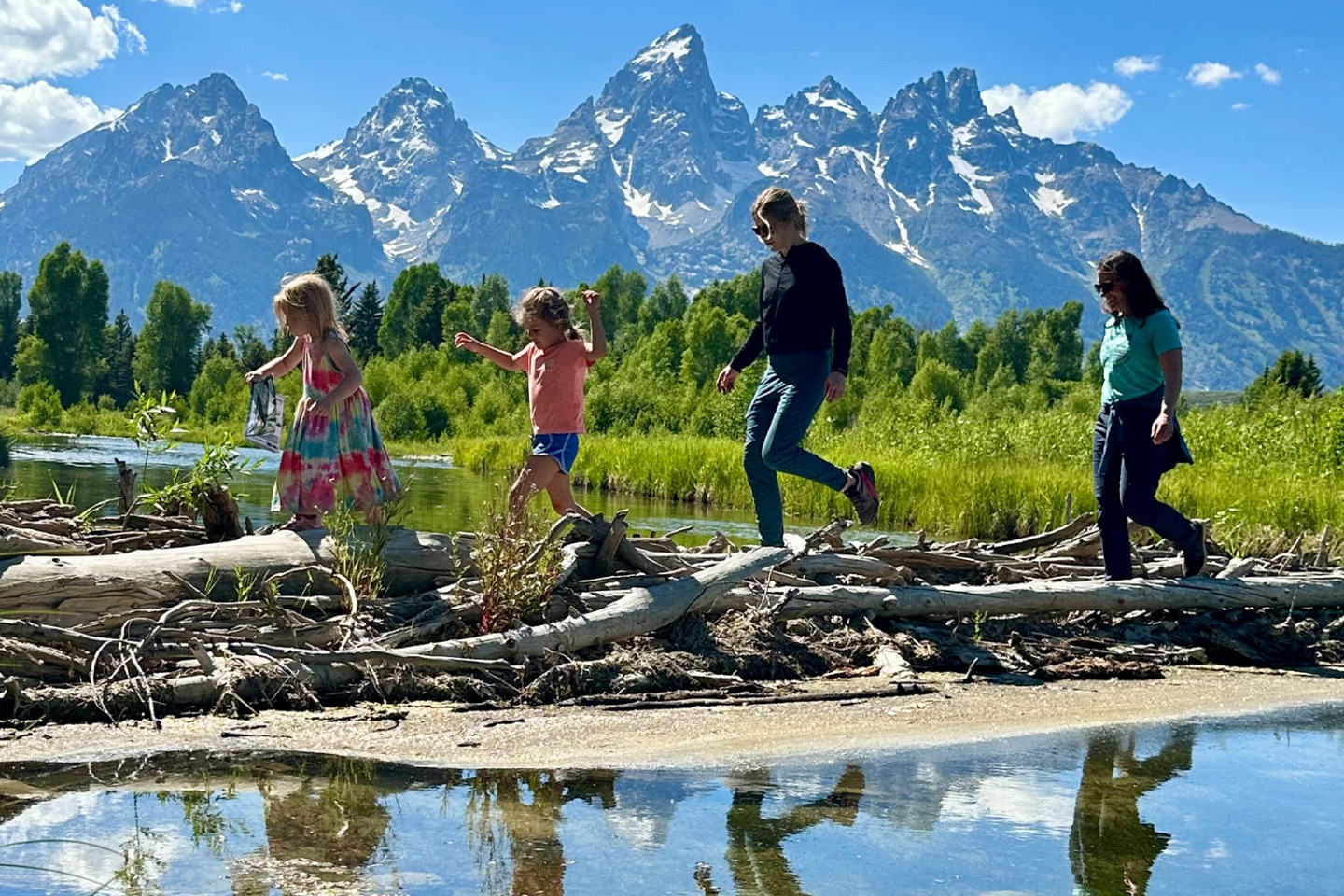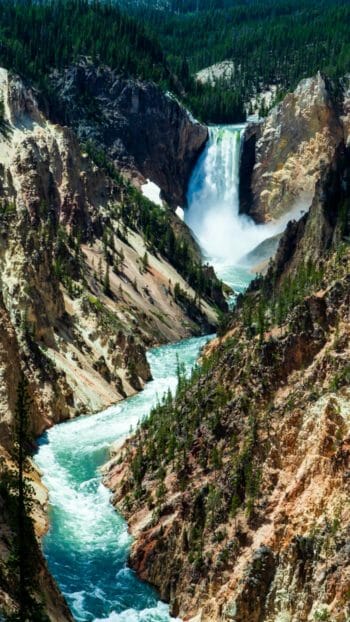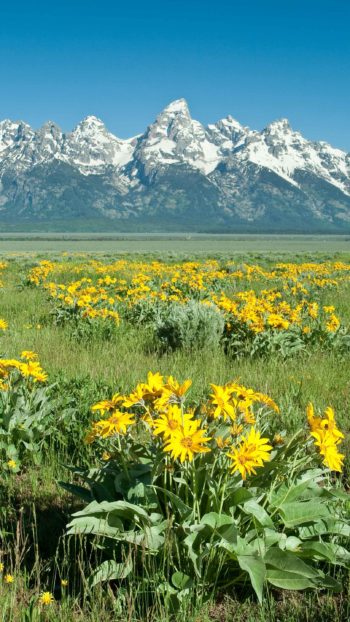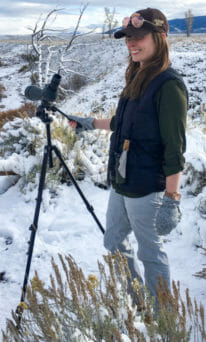During government shutdowns, national parks sometimes remain open to the public, however federal buildings are closed and there is limited or no staffing of federal employees like park rangers. Park rangers ensure that visitors enjoy a positive experience, overseeing safety for people, wildlife, and landscapes. Our collective responsibility is even greater when we choose to explore these spaces during shutdowns to keep our public lands protected.
Exploring Jackson Hole and the Greater Yellowstone Ecosystem is an extraordinary experience. As naturalist guides and stewards of this region, Jackson Hole Wildlife Safaris believes that responsible tourism begins with education and action. By following Leave No Trace principles, visitors can help ensure that these incredible landscapes remain healthy and thriving for generations to come.
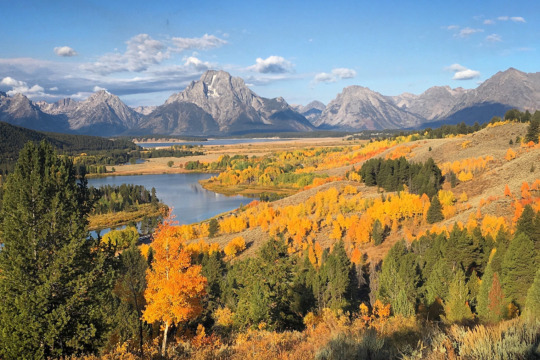
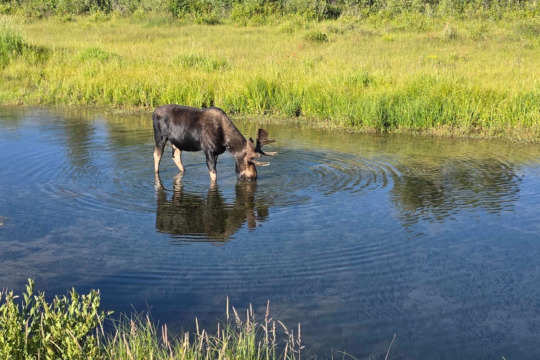
What Is Leave No Trace?
The Leave No Trace philosophy is a set of seven core principles designed to minimize human impact on nature. These guidelines help outdoor travelers make ethical decisions that protect ecosystems, preserve wildlife habitat, and respect other visitors. From staying on trails to properly disposing of waste, these small choices have a lasting effect on the health of our parks and public lands.
The Seven Principles of Leave No Trace:
- Plan Ahead and Prepare – Know local regulations and be ready for variable weather and terrain.
- Travel and Camp on Durable Surfaces – Stick to established trails and campsites to protect fragile vegetation.
- Dispose of Waste Properly – Pack out everything you bring in, including food scraps and litter.
- Leave What You Find – Avoid disturbing rocks, plants, or cultural artifacts.
- Minimize Campfire Impact – Use established fire rings or portable stoves where fires are permitted.
- Respect Wildlife – Observe animals from a safe distance and never feed them. Stay 100 yards from bears and wolves, 25 yards from other wildlife. It’s the law.
- Be Considerate of Others – Keep noise low, yield to other travelers, and share the trail respectfully.
These simple actions make a significant difference, especially in fragile ecosystems like Grand Teton and Yellowstone National Parks.
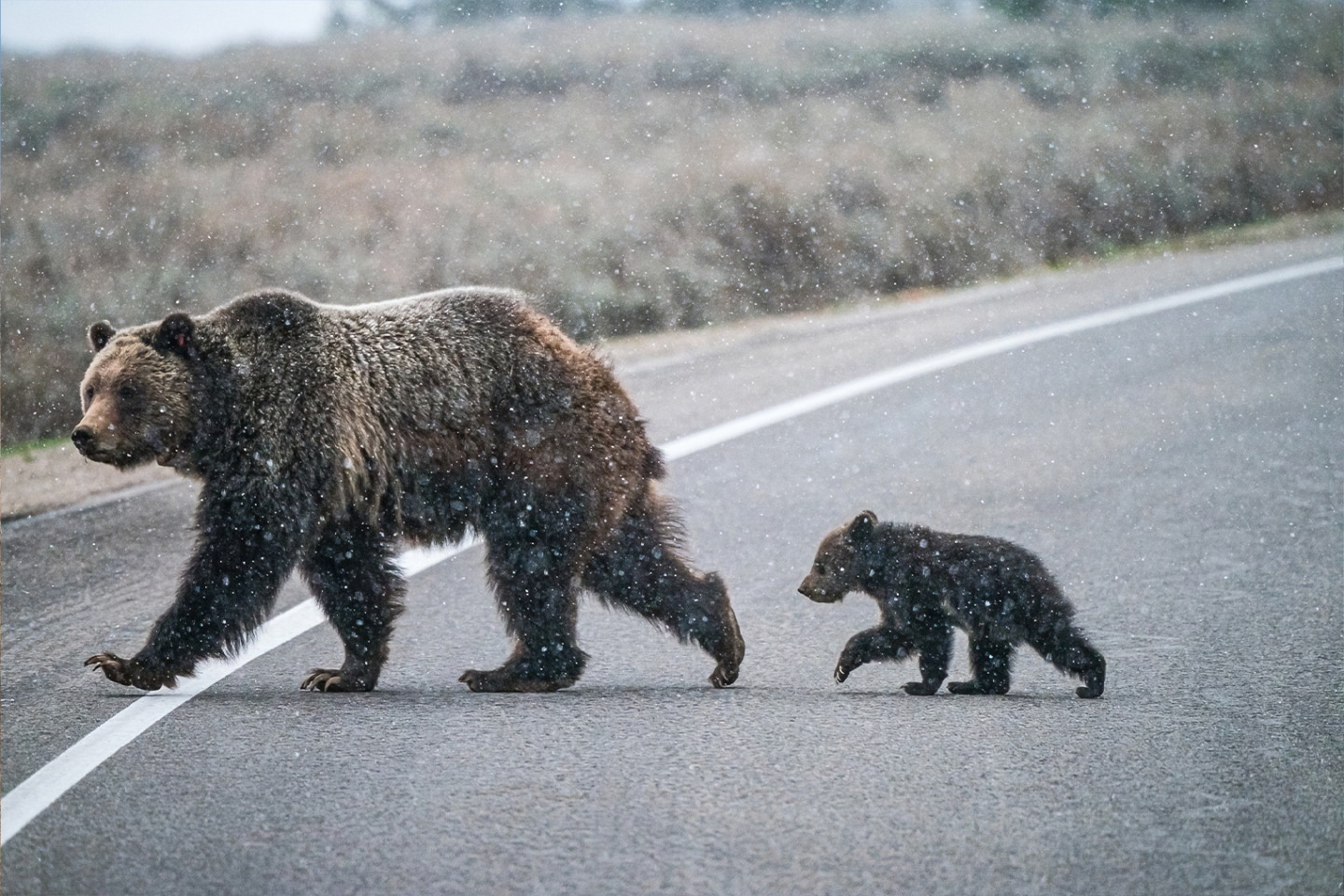
Responsible Tourism in Jackson Hole
Responsible tourism goes beyond minimizing impact; it’s about engaging with the landscape in meaningful, sustainable ways. Jackson Hole Wildlife Safaris practices responsible tourism through ethical wildlife viewing, small group sizes, and educational experiences that foster appreciation and respect for the ecosystem.
Our professional guides model stewardship by:
- Staying on approved roads and pullouts for wildlife viewing.
- Using binoculars and spotting scopes to observe animals safely.
- Avoiding disruption to wildlife behavior and sensitive habitats.
- Teaching guests about conservation efforts and local ecology.
This approach helps ensure that tourism benefits both the natural world and local communities that depend on it.
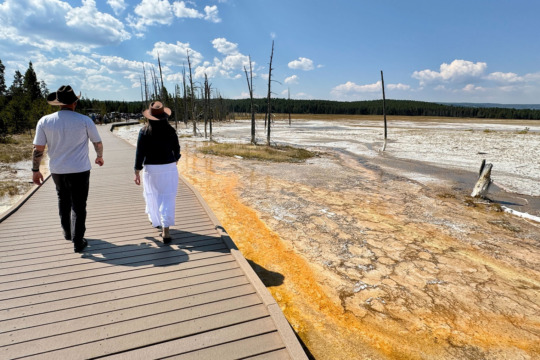
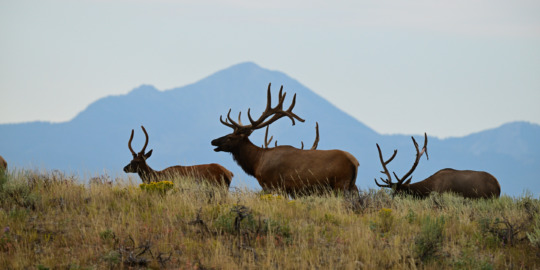
How Leave No Trace Protects the Greater Yellowstone Ecosystem
The Greater Yellowstone Ecosystem is one of the most intact temperate ecosystems on Earth. It supports grizzly bears, wolves, elk, moose, and countless bird species across interconnected landscapes. Even small impacts, like walking off-trail or feeding wildlife, can have outsized effects.
By following Leave No Trace principles, visitors help maintain:
- Healthy wildlife populations by minimizing stress and habitat disruption.
- Clean waterways by preventing pollution from litter or runoff.
- Resilient vegetation by staying on durable surfaces and avoiding trampling.
- Positive visitor experiences for everyone who comes after.
When travelers act responsibly, they become active participants in protecting one of the world’s most remarkable wild places.
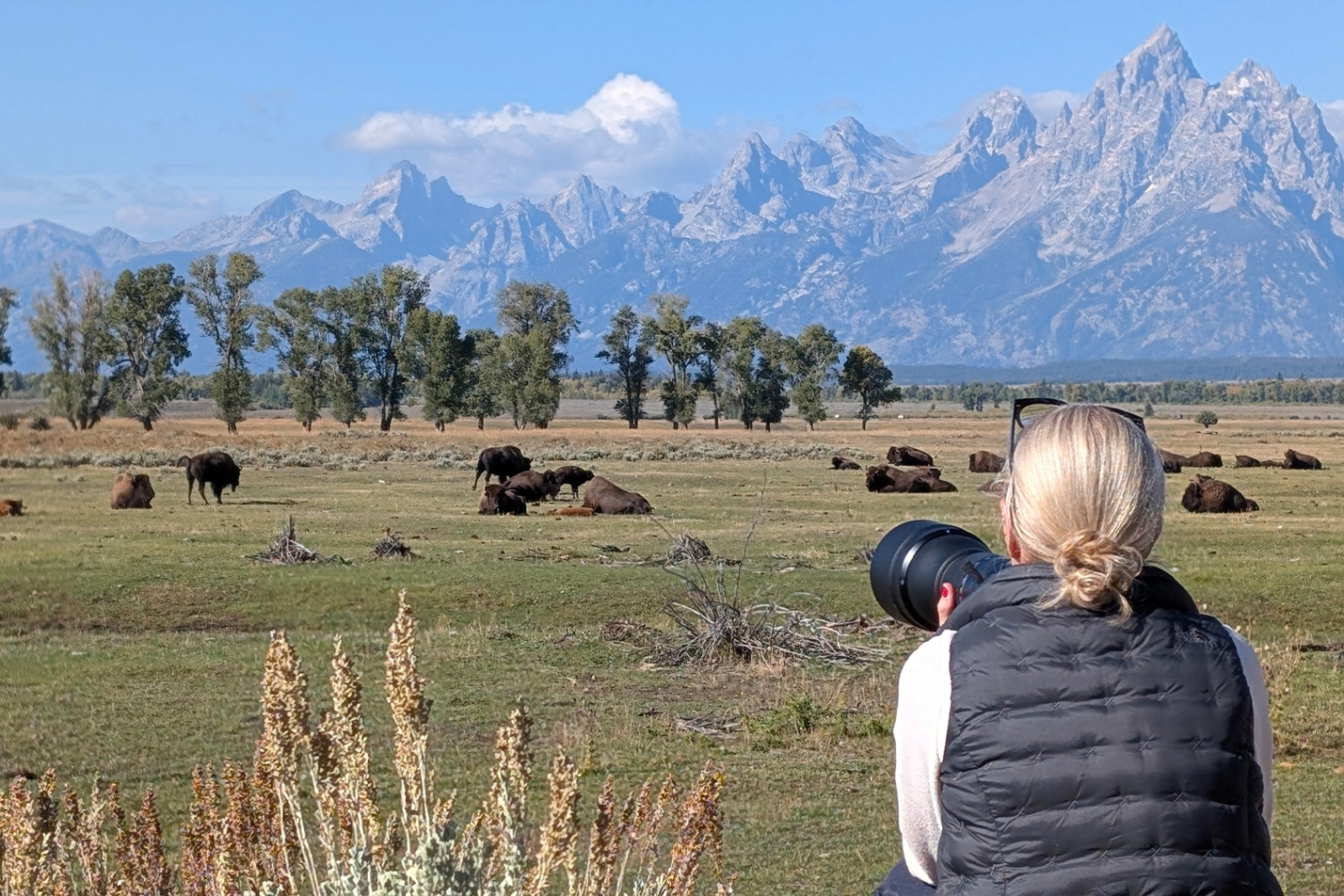
The Role of Wildlife Tourism in Conservation
Ethical wildlife tourism, like guided safaris in Grand Teton and Yellowstone, creates real incentives for conservation. When travelers choose responsible operators who prioritize environmental ethics, they help fund education, park maintenance, and research initiatives.
Responsible wildlife viewing not only reduces human-wildlife conflict but also raises awareness about the challenges facing species such as grizzly bears, wolves, and bison. By learning from naturalist guides, guests leave with a deeper understanding of ecological balance and the importance of long-term stewardship.
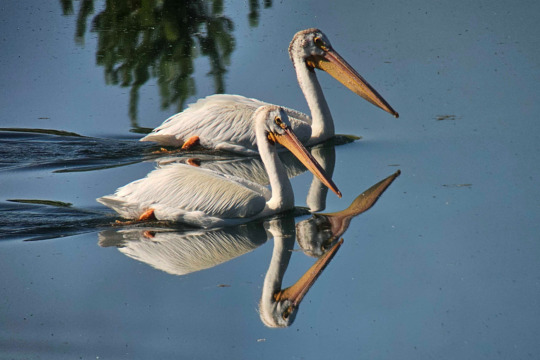
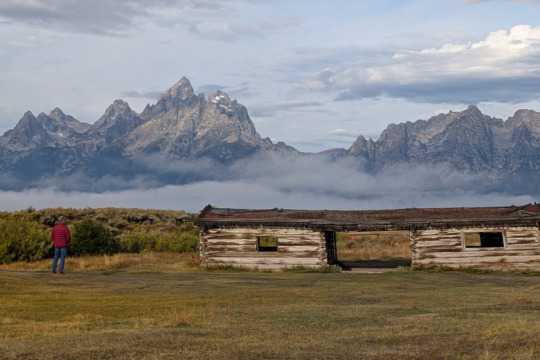
How You Can Travel Responsibly
Visitors to Jackson Hole and Yellowstone can practice responsible tourism by:
- Booking tours with companies that follow Leave No Trace and wildlife-safe viewing guidelines.
- Bringing reusable water bottles, mugs, and utensils to reduce waste.
- Avoiding single-use plastics.
- Staying on designated trails and boardwalks in thermal areas.
- Observing animals quietly and from a respectful distance.
- Supporting local conservation-minded businesses and nonprofits.
Even the smallest mindful choice contributes to protecting the places we love.
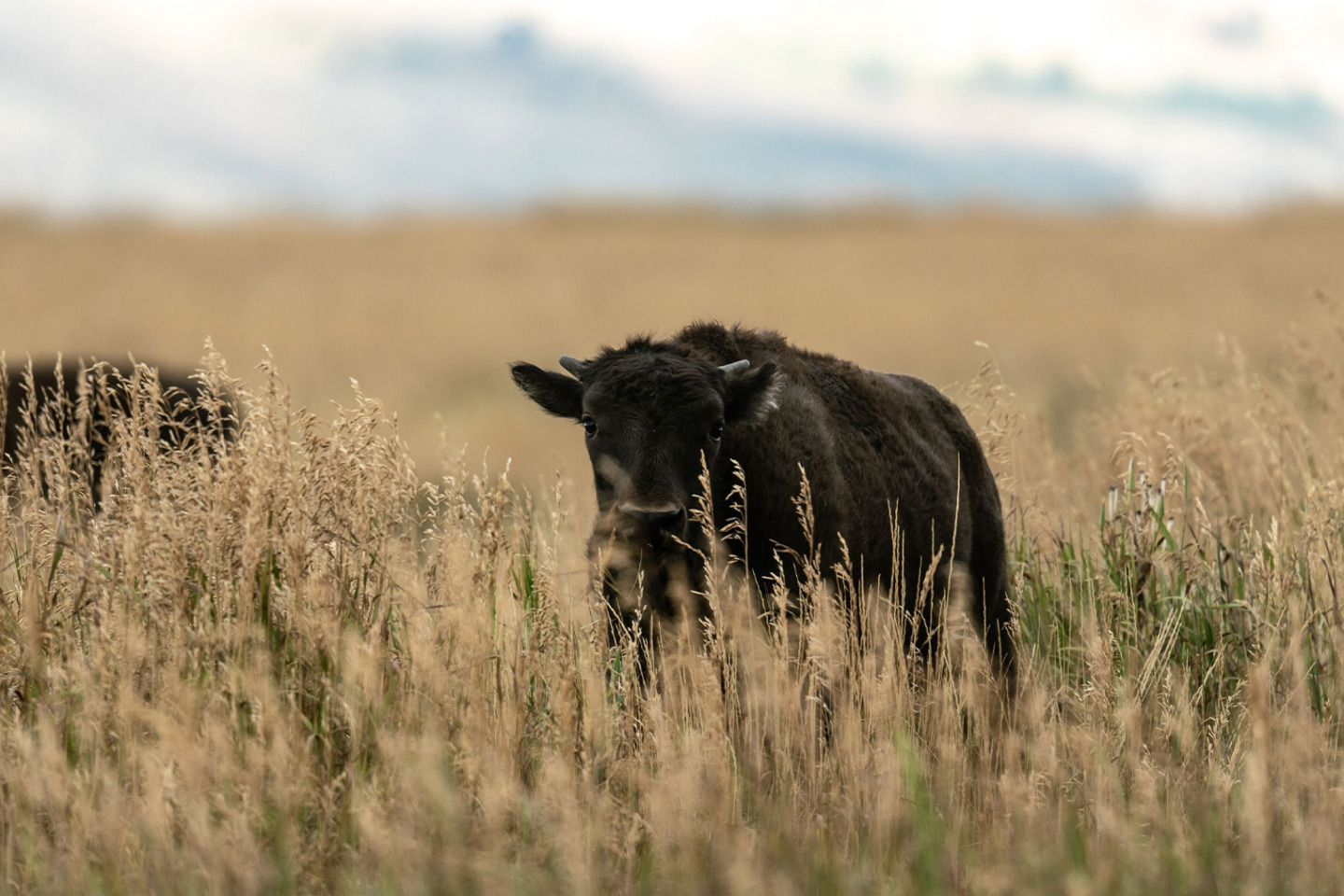
A Shared Responsibility
At Jackson Hole Wildlife Safaris, we believe every visitor plays a role in conservation. Our mission is to create experiences that connect people with nature responsibly, helping them see the world not just as spectators, but as stewards. Through education, respect, and care, we can all help ensure the future of the Greater Yellowstone Ecosystem remains wild and resilient.
FAQs
What does “Leave No Trace” mean?
It means minimizing your impact on the environment by following ethical outdoor practices that protect wildlife, plants, and other visitors’ experiences.
Why is Leave No Trace important in Yellowstone and Grand Teton?
These parks are home to sensitive ecosystems. Practicing Leave No Trace helps preserve habitats, prevent pollution, and maintain safe distances from wildlife.
How can I practice responsible tourism in Jackson Hole?
Choose guided tours with ethical wildlife operators, pack reusable items, and follow park regulations that protect both animals and habitats.
Is wildlife tourism harmful to animals?
When done responsibly, with proper distances, quiet observation, and professional guidance, wildlife tourism can support conservation and community awareness.
How does Jackson Hole Wildlife Safaris promote stewardship?
Our tours emphasize ethical wildlife viewing, small groups, and education. We follow strict guidelines that prioritize the well-being of wildlife and the protection of their habitats.

